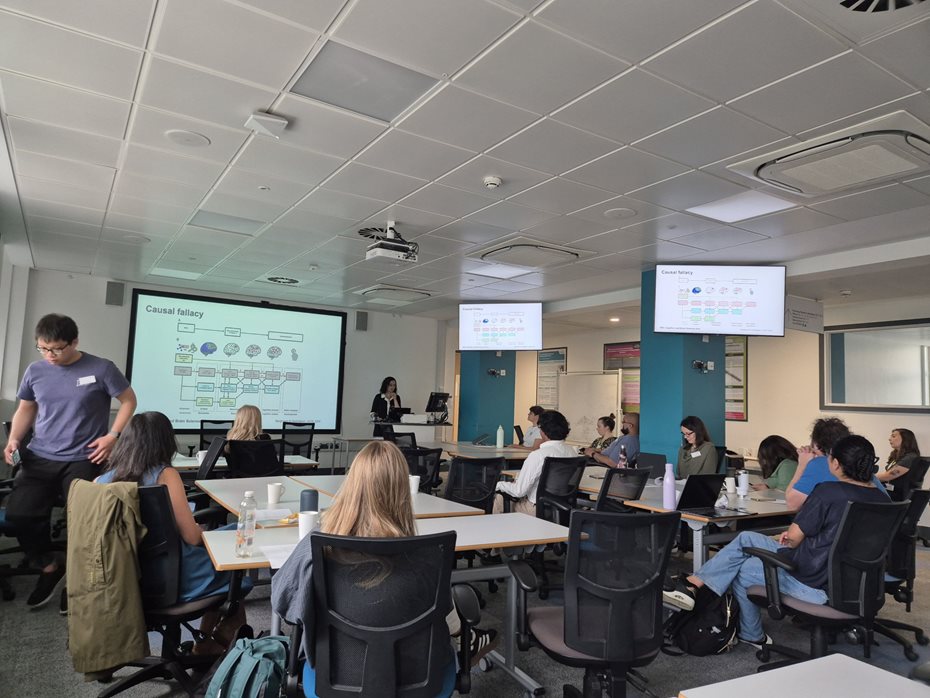PAAC Lab (Perception, Attention and Affective Cognition)
The PAAC Lab supports our research in a range of cognitive and brain processes. These include aspects of:
- visual and attentional processing
- visual working memory
- early motor planning.
A key strand of research of late is how high-level cognitive processes such as those associated with the self and with emotion interact with each other and with cognitive processing more broadly. Work has looked at both clinical and neurotypical populations, using standard behavioural measures and investigation of brain processes by recording and manipulating neural activity.
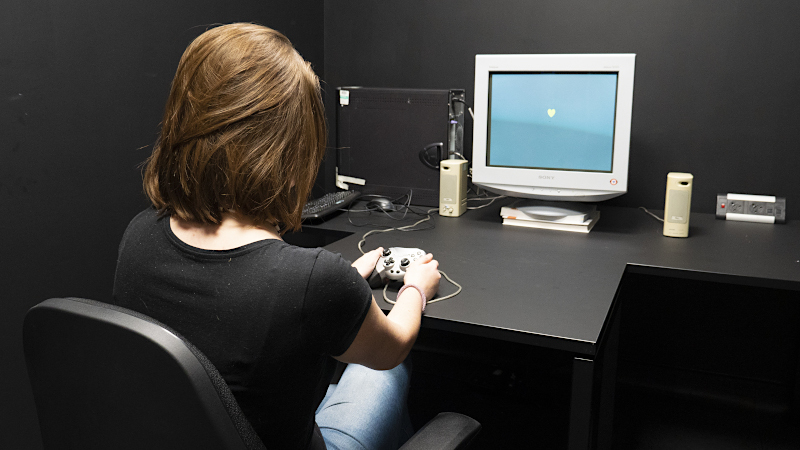
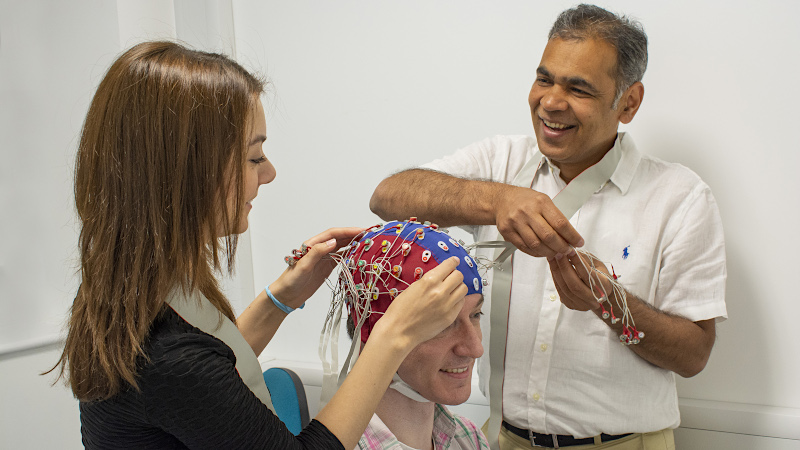
We have a number of specialist labs and equipment to pursue these areas. These include a:
- vision lab with a specialised calibrated monitor and precision timing (CRS Display++)
- TMS room containing a Magstim Rapid2 TMS system
- Cranial Electrotherapy Stimulation (CES) systems
- EEG suite fitted with a 128 channels BioSemi EEG system and dedicated computers installed with BrainVision Anlyzer analysis software.
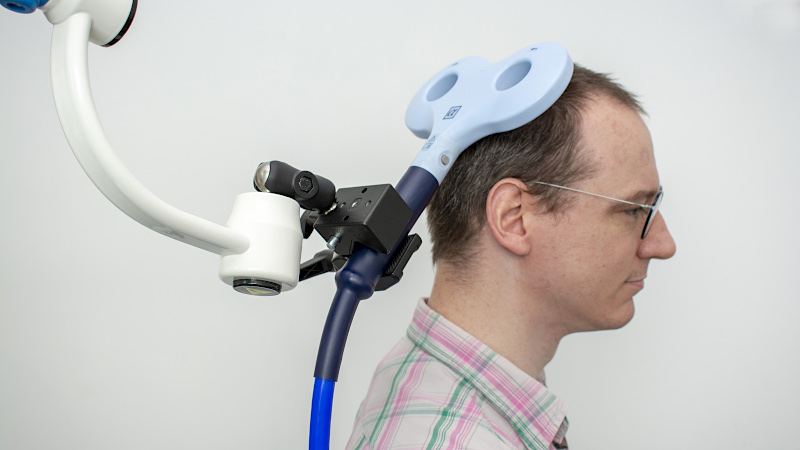
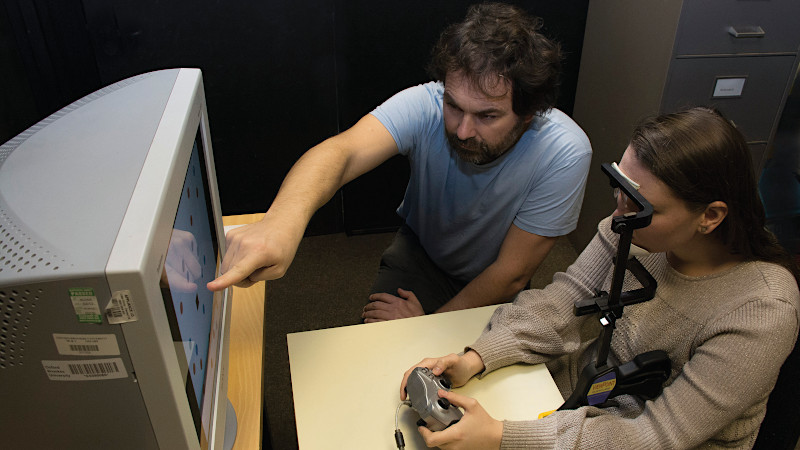
Investigating Sensory Processing and Cognitive Function in People with ME/CFS
The ME Research UK funded project is examining the brain processes in aberrant sensory experiences in individuals with ME (myalgic encephalomyelitis) and CFS (chronic fatigue syndrome). We use EEG and neuropsychological tests to understand how the brain experiences and interprets sensory stimuli in these individuals. The project will provide theoretical understanding that could be used to explore future therapeutic interventions.
Cranial Electrotherapy Stimulation in Depression
This project is funded by Electromedical Products International, Inc and is investigating the efficacy of cranial electrotherapy stimulation in depression and its neural mechanisms.
Transcranial Magnetic Stimulation in Multisensory Integration
This Oxford Brookes University funded project is investigating the role of the anterior cingulate and right dorsolateral prefrontal cortex in multisensory integration. Findings from this study may inform potential use of rTMS in managing aberrant sensory experiences, such as in individuals with ME (myalgic encephalomyelitis) and CFS (chronic fatigue syndrome).
Effects of Air Pollution on Cognition
Funded from Oxford Brookes University Global Challenge Collaborative Research Award, the project investigates effects of air pollution on cognition across the life span in collaboration with several national and international partners.
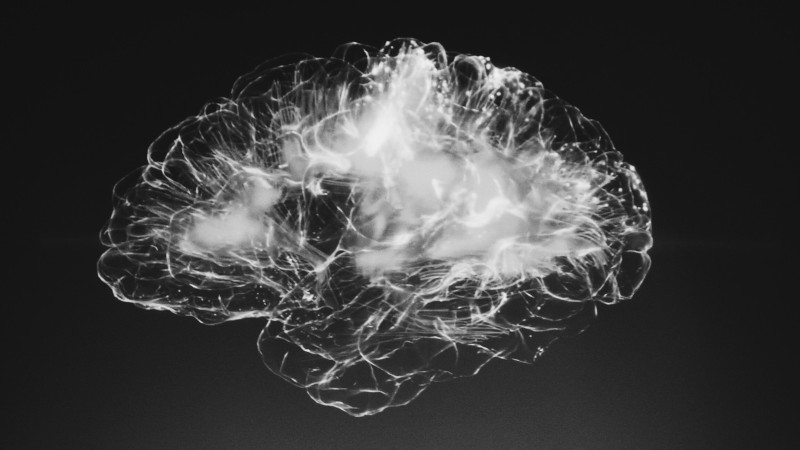
It was a pleasure to host a two day workshop on TMS: Basic Research and Clinical Applications. Many thanks MagVenture and Brain Products GmbH for the support and to all our great speakers and attendees.
We are planning on running another course next summer 2026 so watch this space!
